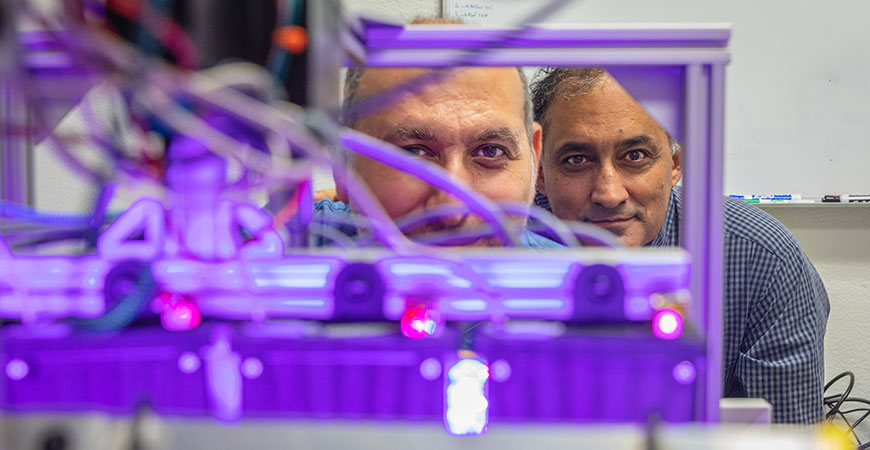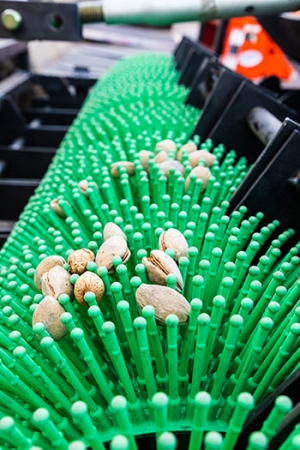
Harvesting is said to be one of the most costly and labor-intensive operations in strawberry production.
But a UC Merced engineering researcher is looking for ways to make it easier and cheaper. As part of a four-year project, Professor Reza Ehsani will explore the possibilities and benefits of people and robots picking the fruit together.
The National Science Foundation’s National Robotics Initiative just awarded Ehsani and two colleagues, at the University of Central Florida and Washington State University, a $1.1 million grant for a study titled “Distributed Co-robots for Strawberry Harvesting.” The project begins this month.
Strawberries are planted on less than 1 percent of California’s farmland, but they are the fourth most valuable crop in the state at $3.1 billion in cash farm receipts, according to the California Strawberry Commission. California and Florida are the leading producers of strawberries in the U.S.
But in recent years, mature strawberries are frequently left unharvested and strawberry production is decreasing due to labor shortages, ever-increasing labor costs, and growing imports from Mexico.
Ehsani is a member of the Department of Mechanical Engineering in the School of Engineering, and a member of the Center for Information Technology Research in the Interest of Society (CITRIS) and the Banatao Institute at UC Merced. He and his colleagues share an expertise in agricultural robotics, decentralized control, arm manipulation, and machine vision.
“The goals are to reduce the cost of harvesting while providing superior harvesting speed and accuracy,” Ehsani said. The grant’s educational goal is to motivate the next generation of students to learn and contribute to agricultural engineering challenges.

Ehsani has designed harvesting systems for a variety of fruits and nuts and is working on several mechanical harvesting machines as well as disease and stress-detection sensors to solve agricultural challenges. His work combines multiple systems, including a visual system — that can see a wider spectrum than humans can — to identify the fruit and a mechanical element to collect it.
“The human hand is particularly challenging to mimic in a machine, and strawberries are a very sensitive fruit; this project will test several robotic arms,” Ehsani said. He has already developed a mechanical means of gentle fruit removal for other crops in the past, such as nectarines, and will apply that research to the strawberry project.
An artificial intelligence component will train the machines to do better with the information they receive, and he and his collaborators will work to bring these systems together with humans.
“We are very excited about Professor Ehsani’s newly funded research activities. It is further testament to the high-caliber research conducted at UC Merced and our ongoing pursuit of being a global leader in precision food systems engineering,” campus CITRIS Director Professor Joshua Viers said. “This research will translate into new areas of innovation and have long-term ripple effects for our local agricultural economy.”



